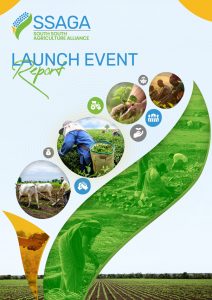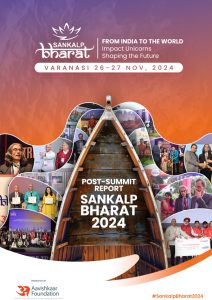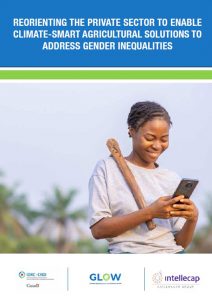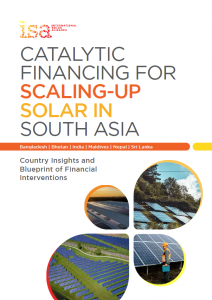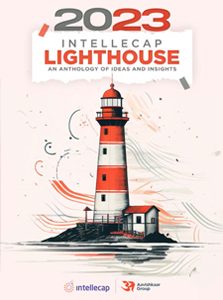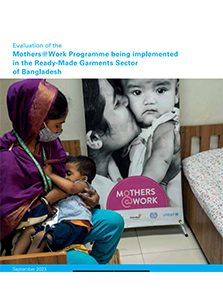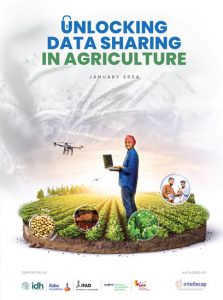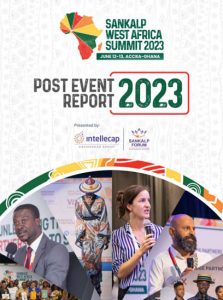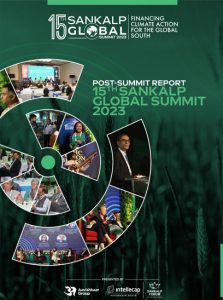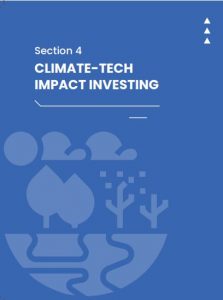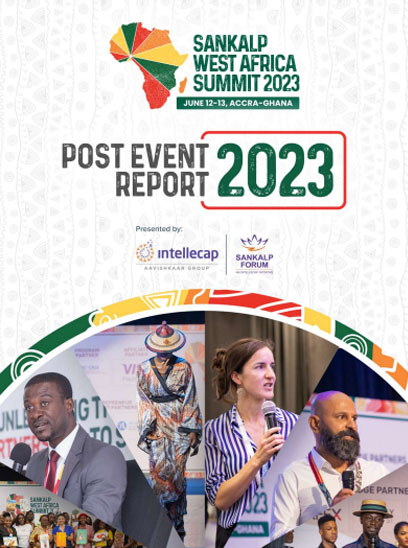TRENDING
-
SSAGA – Benefitting small-scale farmers by fostering innovations and collaboration across the Global South
Published: March, 2025 -
Sankalp Bharat 2024-Post Summit Report
Published: March, 2025 -
Reorienting The Private Sector To Enable Climate-smart Agricultural Solutions To Address Gender Inequalities
Published: February, 2025
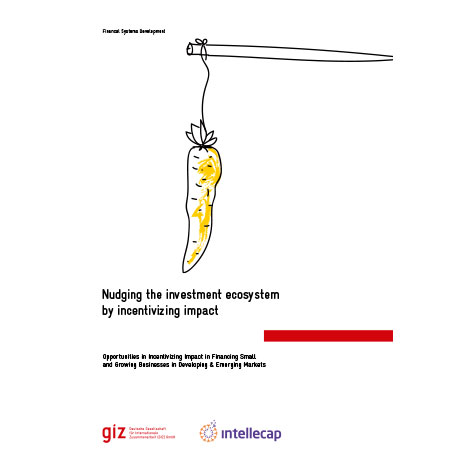
Nudging The Investment Ecosystem By Incentivizing Impact
PUBLISHED: June, 2018
Opportunities in Incentivizing Impact in Financing Small and Growing Businesses in Developing & Emerging Markets
This paper is a summary of fresh ideas on how to channel more capital into impact investing and incentivize impact creation. Building on insights generated by experts at the BMZ hosted conference Financing Global Development – Leveraging Impact Investing for the SDGs, the paper furthers the conversation on Impact Measurement and Management, IMM 2.0, through brainstorming practical ideas and viewpoints in the impact investing value chain: those who provide capital, those who manage it, and those who receive it. This included close to 50 stakeholders, including fund managers, DFIs, intermediaries, entrepreneurs, governments, CSOs and others.
The discussion, conducted in the form of a ‘design lab’ by Deutsche Gesellschaft für Internationale Zusammenarbeit (GIZ) GmbH, Intellecap, and the Swiss Agency for Development and Cooperation (SDC), aims to start a conversation on how to maximize impact by channeling capital into small and growing businesses (SGBs) as a way to expedite achievement of SDGs (Sustainable Development Goals). During the session, industry leaders like FMO, Vox Capital, and Roots of Impact had shared case studies of good practices in incentivizing impact along the investment chain. This formed the basis of brainstorming on development of new ideas on innovative instruments that could nudge the ecosystem towards more actively pursuing and scaling impact.
The result is an analysis of the barriers in the impact investment value chain highlighted during the stakeholder conversations, and key insights on how to overcome them (for example, the need for transparency, standardization, leadership, etc.). In addition, the workshop collated a list of potential ‘wild ideas’ to like impact currency, impact rewards, impact index, online market places for impact auctioning, and a give-back distribution impact support system, designed to incentivize increased levels of investment along the value chain. The practical approaches suggested by stakeholders fit well with the existing impact measurement and monitoring frameworks like GIIN’s IRIS and Intellecap’s PRISM and hold the potential to guide impact capital more efficiently by leveraging good practices.

The Financial Lives of Government Employees – Potential of Digital Finance in Sierra Leone
PUBLISHED: July, 2018
This report documents findings from research on the financial lives of government employees in Sierra Leone, commissioned by the Government to People Payments Project – Building Digital Ecosystem funded by USAID. Intellecap supported UNCDF, Government of Sierra Leone and Bank of Sierra Leone for conducting the research.
There are 80,000 government employees in Sierra Leone who receive salaries digitally in their bank accounts. Insights about their financial lives can help build a viable business case for DFS to expand access to a wide range of financial services for underserved communities in Sierra Leone. Such insights can inform strategies and use cases that the UNCDF and the Government of Sierra Leone can develop to promote DFS in the country. The National Strategy for Financial Inclusion 2017 – 2020 also refers to the need to identify and digitize use cases that will lead to habitual usage, and achieve Sierra Leone’s commitments to the ‘Better Than Cash Alliance’.
Recognizing the need and opportunity, UNCDF supported the Financial Lives Survey of government employees who receive their salaries digitally in Sierra Leone. Intellecap designed the survey to understand how government employees utilize salaries transferred into their bank accounts, their awareness of and access to DFS, avenues to use them and their perceptions about financial services and digital financial transactions. This report contains insights from the survey about potential customers of DFS and recommendations on use cases that could be piloted as an initial step to improve DFS adoption in Sierra Leone.
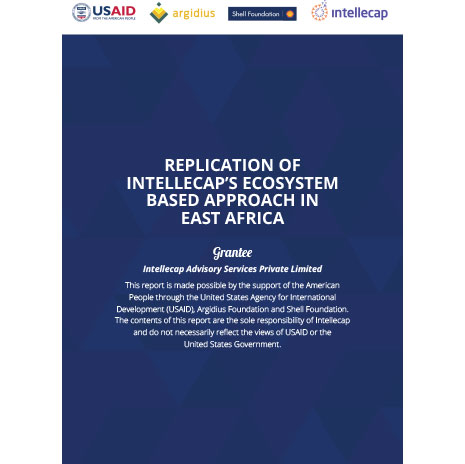
Replication of Intellecap’s Ecosystem Based Approach in East Africa
PUBLISHED: July, 2018
Intellecap has sought to replicate its ecosystem-based approach to East Africa by bringing
together capital, knowledge and networks to support SGBs at two levels: (i) provide direct support
to SGBs in the form of acceleration, fund-raising, technical assistance, innovation transfer, and
market linkages, and (ii) discover and engage critical ecosystem players such as corporations
(both local and international), accelerators, other development sector players in supporting SGBs.
In the three-year period since the launch of our initiative to replicate our ecosystem-based
approach for accelerating entrepreneurship support to SGBs in East Africa, we have received
generous support not only from our funders, but also from a number of local and international stakeholders such as development institutions, private sector entities, and industry associations.
Over the last year, we have replicated our advocacy platform (Sankalp), angel investment network
(I3N) advisory services (consulting & investment banking), virtual incubation platform
(StartupWave) and impact measurement platform (PRISM) as envisaged at the beginning of our
programmatic support. The development and adaptation of StartupWave for East Africa has
resulted in over 450 sign-ups for our early stage enterprise support activities and partnerships with
over 30 incubators / accelerators. Similarly, PRISM, our impact measurement platform, has
garnered interest from a wide variety of players to measure the impact of their programs.
All Publications
-
SSAGA – Benefitting small-scale farmers by fostering innovations and collaboration across the Global South
PUBLISHED: March, 2025READ MORE -
Reorienting The Private Sector To Enable Climate-smart Agricultural Solutions To Address Gender Inequalities
PUBLISHED: February, 2025READ MORE -
Intellecap Lighthouse 5.0 – An Anthology of Ideas & Insights (2023)
PUBLISHED: March, 2024READ MORE -
Intellecap’s Evaluation of Mothers@Work programme published by UNICEF Bangladesh
PUBLISHED: March, 2024READ MORE -
Using Climate Tech for Achieving Net Zero & Resilience- by Sanchayan Chakraborty and Santosh Singh in ” Impact Investing Handbook 2022″
PUBLISHED: October, 2023READ MORE
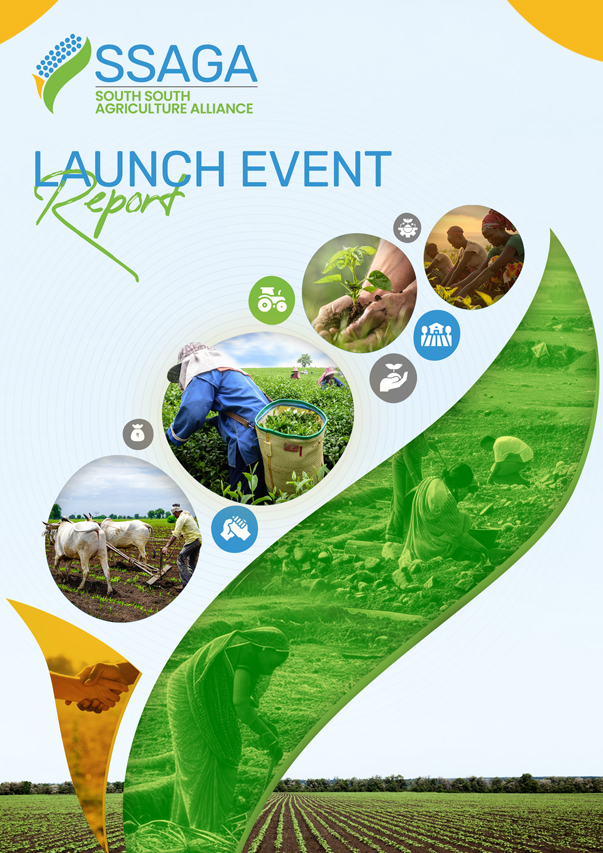
SSAGA – Benefitting small-scale farmers by fostering innovations and collaboration across the Global South
PUBLISHED: March, 2025
Agriculture landscape across the Global South is studded with millions of smallholder farmers. Although the context of each geography varies significantly, the nature of the challenges faced by the smallholder farmers is similar. Concerted collaboration between Global South agriculture ecosystem stakeholders has great potential to catalyse innovations in technologies and business models and share relevant knowledge that can address these challenges. However, the agriculture ecosystems across different geographies in Global South are not equally conducive to enable this.
Several innovations across are being developed to address the needs of smallholder farmers. They have the potential of solving the common challenges faced by farmers across the Global South. While this shows a great potential, geographical boundaries tend to limit the benefits across countries.
The South-South Agriculture Alliance (SSAGA) – funded by the Gates Foundation – has been set up as an initiative to accelerate diffusion of agricultural innovations across the Global South and foster greater dialogue and collaboration. In pursuit of this, SSAGA will perform the functions of building a network of strategic and tactical partner stakeholders, engendering dialogue and precipitating action through periodic convenings, supporting innovative agriculture enterprises in scaling across geographical boundaries, and developing and disseminating learnings and good practices.
To date, SSAGA has onboarded a set of strategic partners (ThinkAg, ACELI Africa and Sustain Africa) – to guide and direct its functioning and several tactical partners to support enterprises in scaling across new geographies. It also plans to continuously engage stakeholders and generate & disseminate relevant knowledge. SSAGA is also supporting the first cohort of five Indian Agritech enterprises to scale in the target African geographies of Kenya, Rwanda and Tanzania.
SSAGA has the potential to impact the lives and livelihoods of over 600 million farmers across the Global South, scale beyond the India-Africa axis and provide a replicable model for other sectors.
Intellecap is implementing the South-South Agricultural Alliance (SSAGA) initiative to foster dialogue and facilitate the transfer of knowledge and innovations are across the Global South. The recent launch event in Kigali underscored the importance of such a platform and reinforced the need for continued collaboration and engagement among the larger agriculture community.
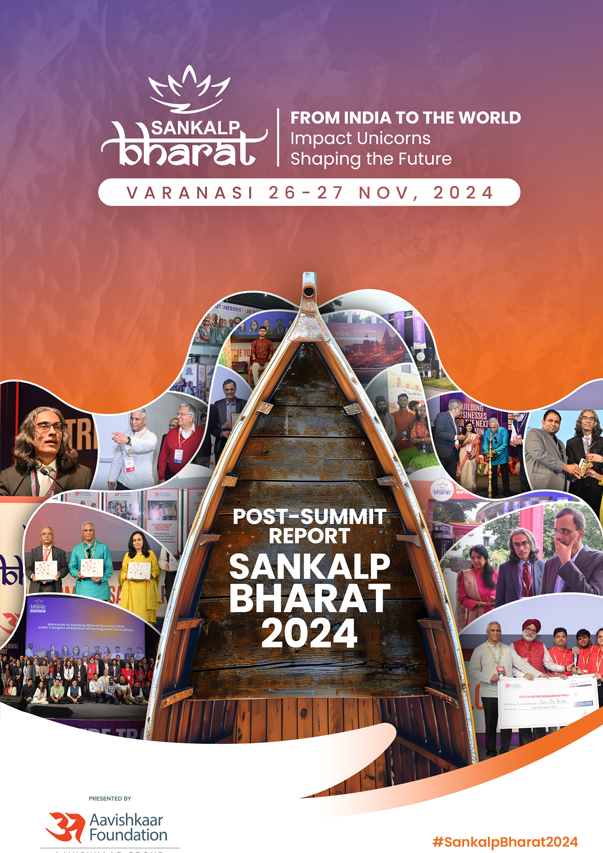
Sankalp Bharat 2024-Post Summit Report
PUBLISHED: March, 2025
Held on the 26th and 27th of November at the Rudraksh International Cooperation and Convention Centre in Varanasi, the Sankalp Bharat Summit 2024, was a milestone event presented by the Aavishkaar Foundation and Intellecap—two key pillars of the Aavishkaar Group. By convening in the heart of rural India, we spotlighted the untapped potential of rural economies and redirected the narrative to focus on the stories of innovation and impact emerging from India’s heartland.
We celebrated the spirit of impact entrepreneurship and innovation under the theme, “From India to the World: Impact Unicorns Shaping the Future.” This year’s theme served as a clarion call to rethink the trajectory of development and to leverage India’s entrepreneurial ecosystem as a beacon of hope for the Global South.
The Sankalp Bharat Summit 2024 was more than just an event; it was a platform to foster connections, mobilize investments, and catalyze transformative ideas. By gathering diverse stakeholders—entrepreneurs, investors, policymakers, and thought leaders—we aimed to inspire action and co-create solutions that lea
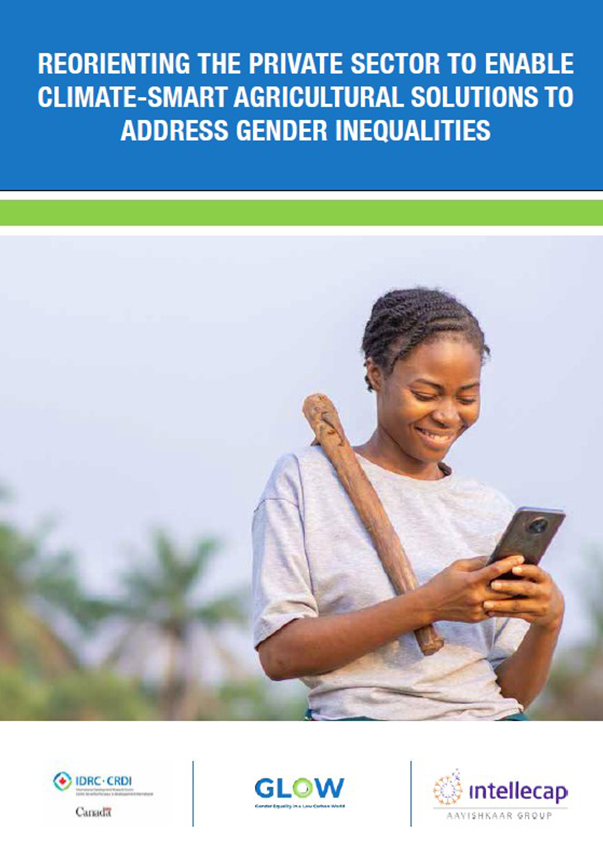
Reorienting The Private Sector To Enable Climate-smart Agricultural Solutions To Address Gender Inequalities
PUBLISHED: February, 2025
To solve the dual challenge of transitioning to a low-carbon economy and mitigating gender inequalities, Intellecap, with support from IDRC, designed an implementation research program to strengthen Private Sector Enterprises (PSEs) and scale solutions that make agriculture climate-smart and gender-inclusive. The accelerator program supported PSEs providing solutions at the intersection of agriculture/ food systems and climate change. The program offered technical assistance support to 8 PSEs across Kenya, Rwanda, Uganda, and Tanzania, targeting enterprises across all agricultural sub-sectors including crop farming, fishery, livestock & animal husbandry, and other related areas. The program provided customized support to PSEs, while assisting them to use gender-transformative approaches to scale up their business.
The report highlights the role of women in agriculture value chains and creates an evidence base that establishes the case for channeling capital to PSEs offering climate-smart solutions. The program successfully integrated gender considerations into PSEs’ business models, resulting in more inclusive workplaces, enhanced business performance, and significant positive impacts on women within the value chain. The program outcomes outlined in the report underscore the value of gender mainstreaming in achieving operational and financial success
The report also showcases the 8 PSEs supported as part of the program through individual case studies, which discuss the enterprise business models, support provided to each enterprise, and the outputs and outcomes achieved as a result of the accelerator support. The aim of these case studies is to create a knowledge base that allows impact and gender lens investors to understand the financial and social impact of climate-smart PSEs in the region and encourages them to adopt an explicit gender lens in their investment thesis. Such evidence creation is also expected to enhance gender-awareness amongst ecosystem stakeholders, ultimately directing capital towards meeting SDG targets.
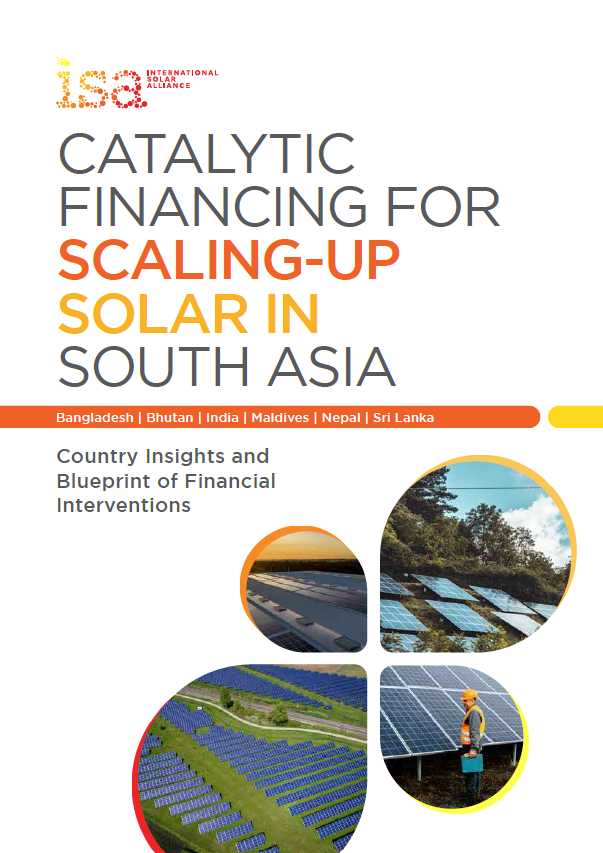
Catalytic Financing for Scaling Up Solar in South Asia
PUBLISHED: May, 2024
Multiple countries in South Asia have made ambitious net zero targets to address climate change, including Bangladesh’s proposal for 2050 and India’s commitment for 2070. This calls for
accelerating the clean and renewable energy transition. The region has immense renewable energy prospects, especially for solar energy which holds a potential of 939 GW.1 However, only 3.8% of the total potential has been developed so far.
The Catalytic Financing Facility for solar aims to infuse investments in the emerging solar segments across target countries. The proposed facility is designed to take a co-investment or blended approach, combining patient development capital with commercial capital to reduce the overall cost of capital while de-risking investments. The facility will de-risk incoming capital with a combination of risk mitigation mechanisms such as payment guarantees, partial credit guarantees and others, while building the ecosystem through capacity development of stakeholders. The concessional capital will assume a high-risk position while commercial capital will be in a low-risk position enabled by grants that provide risk mitigation
measures. The capital flowing through the capacity is expected to largely provide debt to the enterprises and projects while equity, grants, and technical assistance will receive the rest of the share.
Key benefits of the facility are seen across two primary pillars – reducing the cost of capital for project deployment which will lead to reduced tariff of solar energy to consumers;
and reduced risk profile through payment guarantee mechanisms and increased agility in the ecosystem with technical assistance. Further, the design of the facility seeks to address specific barriers in focus segments through a combination of commercial capital along with risk mitigation measures to enable commercial viability of the focus segments.
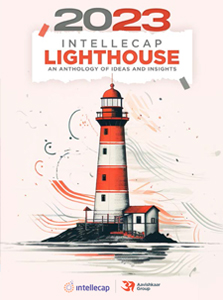
Intellecap Lighthouse 5.0 – An Anthology of Ideas & Insights (2023)
PUBLISHED: March, 2024
Since 2002, Intellecap has constantly strived to shape outcomes in emerging and underserved markets by developing key insights and new ideas. As a result, the organization has undertaken bold initiatives across its various practices to push the envelope, seeking to build collaboration and thought leadership as part of the social impact discourse. This year marks the 5th edition of the Lighthouse, and there’s been a concerted effort to bring more diverse, yet unique perspectives to the sectors Intellecap covers, and unearth fresh ideas that complement our work in nurturing ecosystems to deliver change.
The goal of this endeavour has always been to highlight and share the most relevant thought pieces with our external stakeholders, in order to bring forth sustainable solutions towards achieving the SDGs, as set forth by the United Nations. Our aim to cover a diverse set of perspectives continues, as some of this year’s published pieces include accelerating net zero transitions in the agri ecosystem, building circular supply chains, the disruptive potential of agtech, the climate-gender nexus and the role of renewable energy in creating a greener future, among others.
It is our sincere hope that the Lighthouse offers you more than a glimpse into some of the most compelling geographies and sectors Intellecap serves as part of its key constituents, and aspires to continue serving in the years to come.
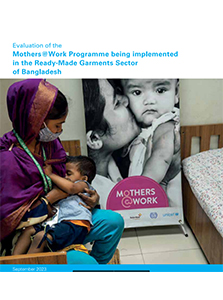
Intellecap’s Evaluation of Mothers@Work programme published by UNICEF Bangladesh
PUBLISHED: March, 2024
We at Intellecap are pleased to share the release of the evaluation report for the Mothers@Work program, conducted by Intellecap for UNICEF Bangladesh. The report was executed by Ashish Sinha, Rahul Agarwal, Aali Sinha and Siya R of Intellecap.
The Mothers@Work Program, operating within Bangladesh’s Ready-Made-Garment (RMG) sector, is a national initiative aimed at enhancing maternity rights and fostering breastfeeding support for working mothers. The evaluation focused on assessing the program’s implementation in the RMG sector between 2017 and 2022.
The evaluation captured key program insights and its effectiveness and provided a roadmap for its potential scalability both within and beyond the RMG sector and across various country settings.
UNICEF presented Intellecap’s findings on multiple occasions across multiple platforms, notably during World Breastfeeding Week.
This successful evaluation by Intellecap strengthens our position for future collaborations with UNICEF Bangladesh.
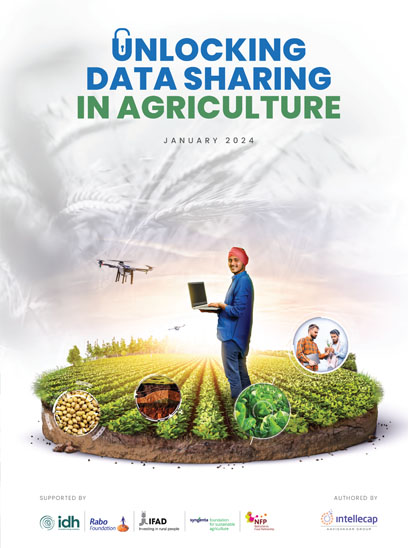
Unlocking Data Sharing in Agriculture
PUBLISHED: January, 2024
Digitized data can be a key enabler in addressing multiple challenges in agriculture with benefits for different stakeholders. To meet food security in times characterized by increasing impacts of climate change on agriculture and supply chain disruptions due to geopolitical tensions, data-driven solutions are being utilized increasingly to optimize the use of inputs, increasing production and productivity and improving access to finance while reducing uncertainties and risks.
Today, however, as the focus on data for agriculture has increased, so have the challenges in the data ecosystem. For instance, there is extensive duplication in data collection, management, and analysis efforts leading to wastage of critical resources and a fragmentation of data ecosystems. Similarly, while several disjoint data pools exist, aggregation of data is constrained because of limited standardization and interoperability. From farmers’ perspective, repeated requests for data is leading to fatigue and a decreasing willingness to engage with digital agriculture service providers.
On the contrary, data-sharing, which can be defined as a scenario where two or more value chain actors share data amongst themselves under a set of binding principles and agreements, can help internalize leakages and orchestrate the agricultural data ecosystem. With this context, Intellecap and several partners organized a learning event and several expert consultations on data sharing in agriculture for smallholder farmers. This report synthesises the learnings from the event and takes a humble first step to decipher action points to promote data sharing in agriculture in a farmer-centric manner.
The report focuses on:
1. Incentives for data-sharing in agriculture;
2. Current scenario of data sharing ecosystem in agriculture;
3. Building blocks of data sharing;
4. Learnings from practical use-cases of data sharing;
5. Recommendations to scale data sharing for agriculture and smallholder farming.
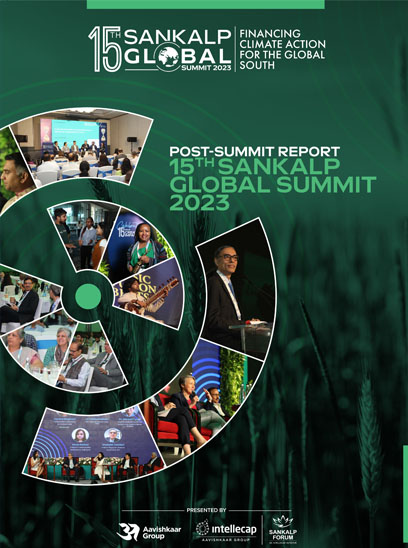
Sankalp Global Summit 2023 Report
PUBLISHED: December, 2023
One of the Global South’s premier convenings on impact entrepreneurship and sustainable development, the 15th Edition of the Sankalp Global Summit, was a remarkable event that positively engaged over 600 different stakeholders from over 14 countries globally.
The Summit, a celebration of 15 years of Intellecap’s impactful journey in the Global South, was our first fully in-person convening since 2020 when Covid-19 struck and forced the World into a series of virtual convenings. The event was well received and attended by veterans, some of whom have been to Sankalp many times in previous years, as well as newbies who got to experience Sankalp in its full for the very first time.
The Summit themed around ” The ‘Great Transition’: Financing Climate Action for the Global South” was a clarion call for capital, collaboration and decisive action towards solving the global climate crisis. The convening featured over 20 sessions, including vital engagements like Investors Roundtable, discussion on Climate Finance, The Climate Dealroom, Impact Hackathon, and Gender Lens Investing Masterclass.
A shout out to our key global sponsors: Affiliate Partner- Artha Impact, Program Partner- Energy Catalyst, and Knowledge Partners – Aavishkaar Capital, British International Investments, Greening of Finance by Women (GroW), International Development Research Centre (IDRC) & World Bank Group-Korea Green Growth Fund for coming together to help achieve the SDGs , with each of them lending specific perspective and insights at the Summit
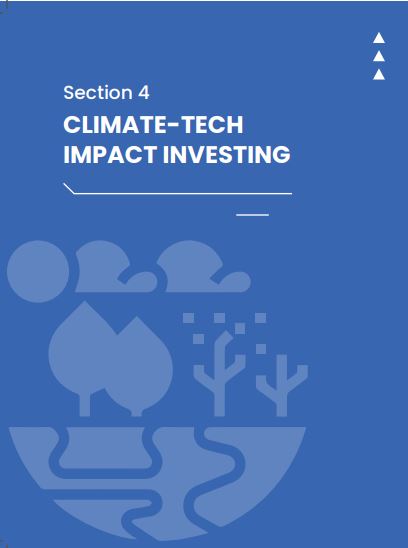
Using Climate Tech for Achieving Net Zero & Resilience- by Sanchayan Chakraborty and Santosh Singh in ” Impact Investing Handbook 2022″
PUBLISHED: October, 2023
Using Climate Tech for Achieving Net Zero & Resilience- by Sanchayan Chakraborty and Santosh Singh in ” Impact Investing Handbook 2022″
Reports & Policies
Our Impact Map

Sign up for our newsletter
© Copyright 2018 Intellecap Advisory Services Pvt. Ltd. - All Rights Reserved



